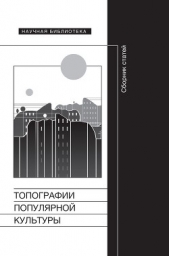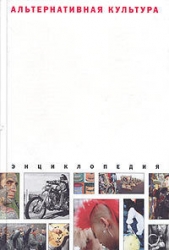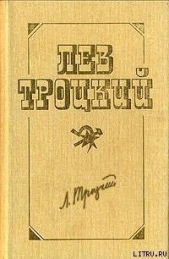Топографии популярной культуры

Топографии популярной культуры читать книгу онлайн
Внимание! Книга может содержать контент только для совершеннолетних. Для несовершеннолетних чтение данного контента СТРОГО ЗАПРЕЩЕНО! Если в книге присутствует наличие пропаганды ЛГБТ и другого, запрещенного контента - просьба написать на почту [email protected] для удаления материала
Deleuze G. & Guattari F. Anti-Oedipus: Capitalism and Schizophrenia. Minneapolis: University of Minnesota Press, 2005 [1983].
Deleuze G. & Guattari F. A Thousand Plateaus: Capitalism and Schizophrenia. London: The Athene Press, 1988.
Denysenko N. An Appeal to Mary: An Analysis of Pussy Riot’s Punk Performance in Moscow // Journal of the American Academy of Religion. 2013. Vol. 81. № 4. 1061–1092.
Donovan J. Style and Power // Feminism, Bakhtin, and the Dialogic / Eds. D. M. Bauer, S.J. McKinstry. New York: State University of New York Press, 1991. 85–94.
Douglas M. Purity and Danger: an Analysis of the Concepts of Pollution and Taboo. London: Routledge, 1966.
Dunn K. «If It Ain’t Cheap, It Ain’t Punk»: Walter Benjamin’s Progressive Cultural Production and DIY Punk Record Labels // Journal of Popular Music Studies. 2012. Vol. 24. № 2. 217–237.
Džalto D. Religion, Politics, and Beyond // Journal of Religion & Society. 2013. Vol. 15. 1–14.
Engel B. A. Mothers and Daughters: Women of the Intelligentsia in Nineteenth-Century Russia. Cambridge: Cambridge University Press, 1986.
Epstein A. D. The Voina Group: Radical Actionist Protest in Contemporary Russia // Post-Post-Soviet? Art, Politics & Society in Russia at the Turn of the Decade / Eds. M. Dziewianska, E. Degot, I. Budraitskis. Warsaw: Museum of Modern Art in Warsaw. Books № 7. 2013. 263–278.
Forte J. Women’s Performance Art: Feminism and Postmodernism // Performing Feminisms. Feminist Critical Theory and Theatre / Ed. S.–E. Case. Baltimore; London: The Johns Hopkins University Press, 1990. 251–269.
Ganser A. Roads of Her Own: Gendered Space and Mobility in American Women’s Roads Narratives, 1970–2000. Amsterdam: Rodopi, 2009.
Goldberg R. L. Performance Act. From Futurism to the Present. (Revised and expanded edition.) London; New York: Thames & Hudson world of art, 2001 [1998].
Gradskova Y., Sandormirskaja I. & Petrusenko N. Pussy Riot: Reflections on Receptions. Some Questions Concerning Public Reactions in Russia to the Pussy Riot’s Intervention and Trial // balticworlds.com on 2013. 20 Febr. http://balticworlds.com/reflections-on-receptions/ [Просмотрено 22.08.2014].
Hall S. On Postmodernism and Articulation: An Interview with Stuart Hall / Ed. L. Grossberg. S. Hall // Critical Dialogues in Cultural Studies / Eds. D. Morley, K. – H. Chen. London; New York: Routledge, 1996 [1986]. 131–150.
Hartley J. The Politics of Pictures. The Creation of the Public in the Age of Popular Media. London; New York: Routledge, 1992.
Haste H. The Sexual Metaphor. New York: Harvester Wheatsheaf, 1993.
Hausbacher E. «…denn die Geschöpfe lieben Aufmerksame»: Weiblichkeit in der Schrift Elena Guros (1877–1913). Frankfurt am Main: Peter Lang, 1996.
Jager C. Crossing the Line: Blasphemy, Time, and Anonymity // Qui Parle: Critical Humanities and Social Sciences. 2014. Vol. 22. № 2. 1–30.
Lehtonen M. & Koivunen A. The «Popular» Revisited. From Theory to Meta-theory // Senmoderna reflexioner. Festskrift till Johan Fornäs / Eds. E. Bjurström, M. Fredriksson, U. Olsson, A. Werner. Linköping University Electronic Press, 2012. 25–33. http://liu.diva – portal.org/smash/record.jsf?pid=diva2:496579 [Просмотрено 25.06.2014].
Leonard M. Gender in the Music Industry. Rock, Discourse and Girl Power. Aldershot: Ashgate, 2007.
Litovskaia M. & Shaburova O. Russian glamour and its representations in post-Soviet mass media // Russian Mass Media and Changing Values / Eds. A. Rosenholm, K. Nordenstreng & E. Trubina. London; New York: Routledge, 2010. 193–208.
Massey D. Space, Place, and Gender. Minneapolis, MN: University of Minnesota Press, 1994.
Miettinen M. Truth, Justice, and the American Way? The Popular Geopolitics of American Identity in Contemporary Superhero Comics. Acta Universitatis Tamperensis 1790. Tampere: TUP, 2012.
Nehring N. Popular Music, Gender and Postmodernism. Anger Is an Energy. Thousand Oaks; London; New Delhi: Sage Publications, 1997.
Orr C. M. Charting the Currents of the Third Wave // Hypatia. 1997. Vol. 12. № 3. 29–45.
Parker H. N. Toward A Definition of Popular Culture // History and Theory. 2011. № 50. 147–170.
Rose G. Feminism and Geography: The Limits of Geographical Knowledge. Minneapolis, MN: University of Minnesota Press, 1993.
Rosenholm A. & Savkina I. «We must all give birth: that’s an order»: The Russian mass media commenting on V. V. Putin’s address // Russian Mass Media and Changing Values / Eds. A. Rosenholm, K. Nordenstreng & E. Trubina. London; New York: Routledge, 2010. 79–101.
Schlögel K. Im Raume lesen wir die Zeit. Über Zivilisationsgeschichte und Geopolitik. Frankfurt am Main: Fischer Verlag, 2006.
Shaw C. «Fashion Attack»: The Style of Pussy Riot // Digital Icons: Studies in Russian, Eurasian and Central European New Media. 2013. № 9. 115–128.
Shevzov V. Russian Orthodoxy on the Eve of Revolution. Oxford: Oxford University Press, 2004.
Slack J. D. The theory and method of articulation in cultural studies // Stuart Hall. Critical Dialogues in Cultural Studies / Eds. D. Morley & K. – H. Chen. London; New York: Routledge, 1996. 112–129.
Strukov V. From Local Appropriation to Global Documentation, or Contesting the Media System // Digital Icons. Studies in Russian, Eurasian and Central European New Media. 2013. № 9. 87–97.
Tally R. T., Jr. Spatiality. London; New York: Routledge, 2013.
Turner V. The Ritual Process. Structure and Anti-Structure. Ithaca; New York: Cornell University Press, 1969.
Turner V. Social Dramas and Stories About Them // Critical Inquiry. 1980. Vol. 7. № 1. 141–168.
West-Pavlov R. Space in Theory. Kristeva, Foucault, Deleuze. Amsterdam; New York: Rodopi, 2009.
Wheeler B. B. Negotiating deviance and normativity. Performance art, boundary transgressions, and social change // Performance. Critical Concepts in Literary and Cultural Studies. Vol. IV / Ed. Ph. Auslander. London; New York: Routledge, 2003. 269–288.
Wilson E. The Sphinx in the City: Urban Life, the Control of Disorder, and Women. London: Virago, 1991.
www.openculture.com. http://www.openculture.com/2012/09/kim_gordon_on_why_russia_and_the_us_need_a_pussy_riot.html [Просмотрено 22.08.2014].
Zguta R. Russian Minstrels. Oxford, 1978.
Zherebkina I. «In Russia a Poet Is More Than a Poet»: Murderous/Murdering Poetical Nonconformism (Anna Alchuk and Political Regimes in Russia) // Mapping Experience in Polish and Russian Women’s Writing / Eds. M. Rytkönen, K. Kurkijärvi, U. Chowaniec and U. Phillips. New Castle: Cambridge Scholars Publishing, 2010. 192–213.
Сведения об авторах
Абашев Владимир Васильевич, доктор филологических наук, профессор, заведующий кафедрой журналистики и массовых коммуникаций Пермского университета, автор книг: Пермь как текст. Пермь, 2008; Русская литература Урала. Проблемы геопоэтики. Пермь, 2012 и др.
[email protected]
Абашева Марина Петровна, доктор филологических наук, профессор кафедры новейшей русской литературы Пермского государственного гуманитарно-педагогического университета, автор работ: Литература в поисках лица. Русская проза в конце ХХ века: становление авторской идентичности. Пермь, 2001; The Literary Prize as a Means to an End: An Insider’s Notes // Russian Studies in Literature. Vol. 48. № 4 / Fall 2012. P. 63–73 и др.
m. [email protected]
Барковская Нина Владимировна, доктор филологических наук, профессор кафедры литературы и методики ее преподавания Уральского государственного педагогического университета (г. Екатеринбург), автор книг: Поэтика символистского романа. Екатеринбург: Урал. гос. пед. ун-т, 1996; Поэзия Серебряного века. 4‐е изд. Екатеринбург: Урал. гос. пед. ун-т, 2010 и др.
























